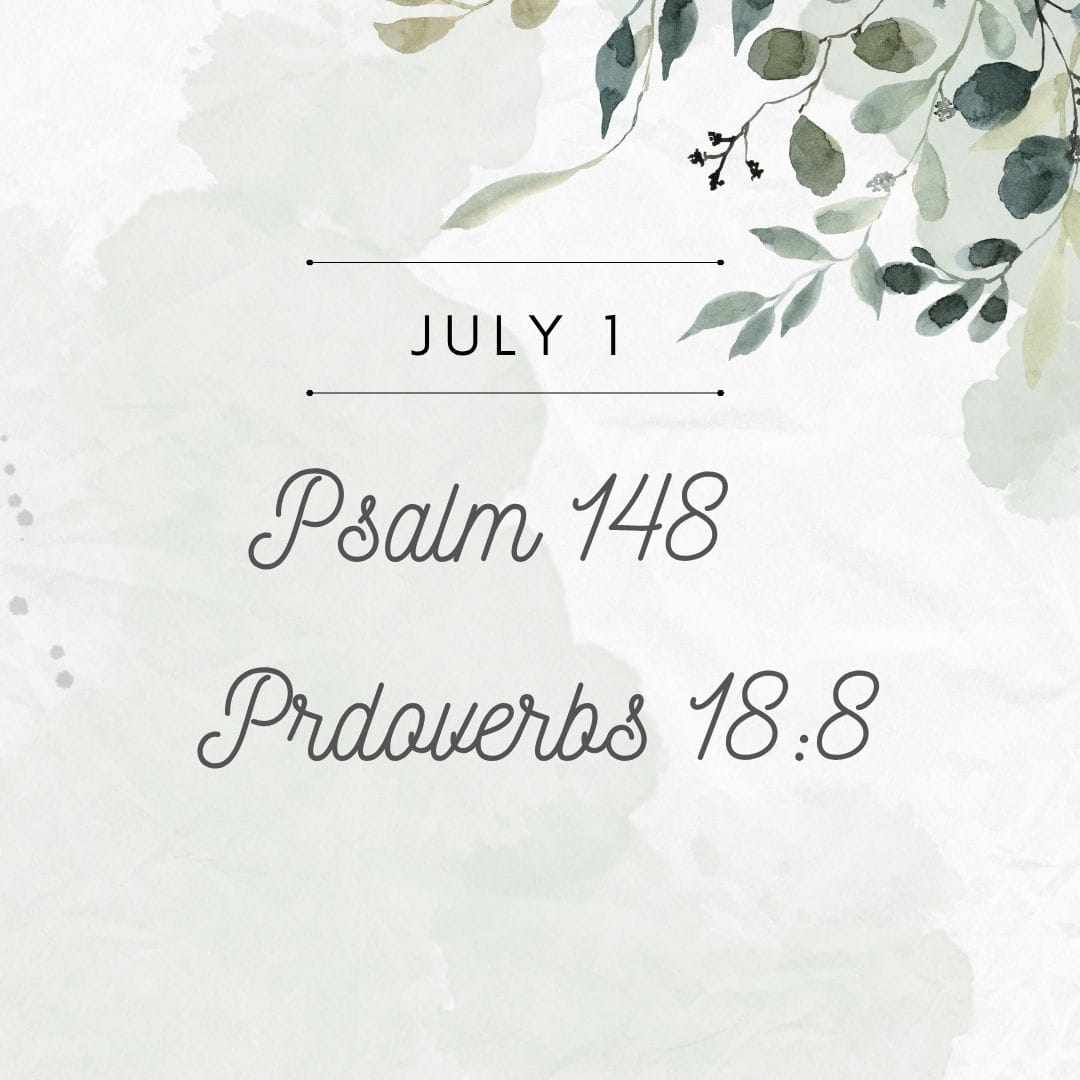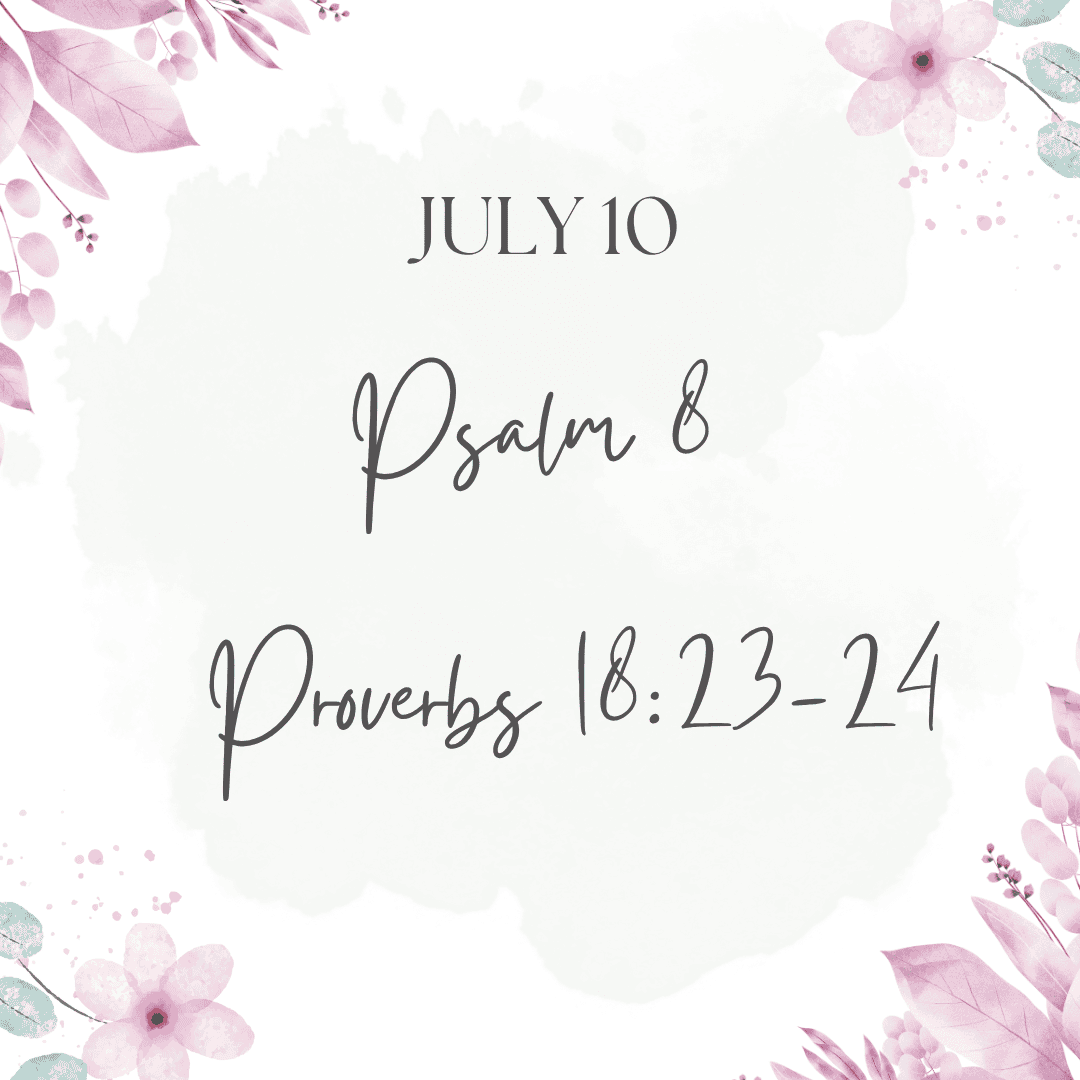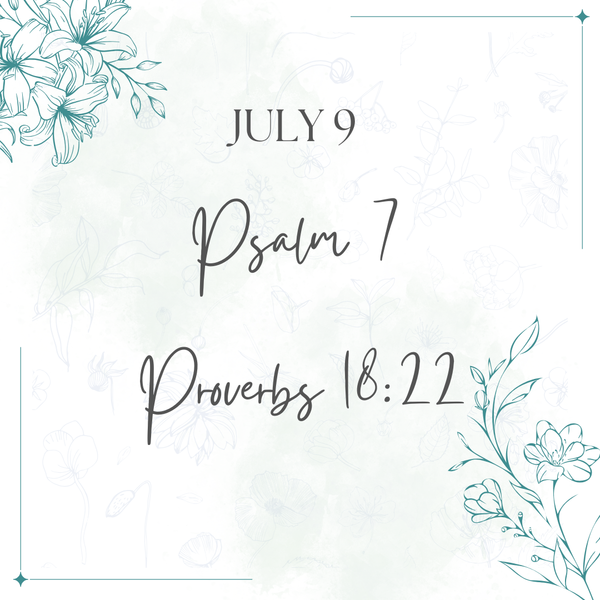July 1 Psalm 149; Proverbs 18:8

- Psalm 149:1-3 – What kinds of expressions are used to praise the Lord? Who is invited to participate in this praise?
- Psalm 149:4 – What does the verse say about the Lord’s attitude toward His people? What does it mean that He “adorns the humble with salvation”?
- Psalm 149:6-9 – What contrasts can you observe between joyful praise and executing judgment?
- Proverbs 18:8 – What metaphor is used for gossip (or "words of a whisperer")? What does it suggest about its emotional and psychological effects?
- Psalm 149:4 – What does this psalm teach about God’s delight in His people? How is this different from how we might expect God to feel about us when we are discouraged or ashamed?
- How do God's justice (vv. 7–9) and delight (v. 4) coexist? What does this say about His balanced character—both loving and just?
- Psalm 149:2-3 – How might public celebration and physical expression (dancing, singing) help renew a discouraged or heavy heart?
- Psalm 149:5 – How can "singing for joy on their beds" reshape nighttime thought patterns of anxiety, loneliness, or anger?
- Proverbs 18:8 – Why is gossip emotionally damaging to both the speaker and the listener? How might avoiding or rejecting gossip promote emotional health?
- Based on Psalm 149 as a whole, how might engaging in worship and justice help someone recover from emotional states like shame, bitterness, or despair?
However, as of now, as I watch and listen to the tragic flood news at Camp Mystic in Texas, I am overwhelmed with grief. As a mother of two daughters around the same age as the girls who were swept away, I cried and cried. I can't begin to imagine the pain of a parent who dropped off their children at camp—only to never see them again.
How can I sing a new song to the Lord while facing such heartbreaking news—news that hits so close to home?
And yet, the only comfort I can find in this moment is knowing that those sweet girls, at least some of them, are now in heaven, resting in peace, safe in His arms—forever free from the pain and frustration this world might have brought them in the future.
Let us continue to pray for the ongoing rescue efforts and for the parents who lost their precious children.



